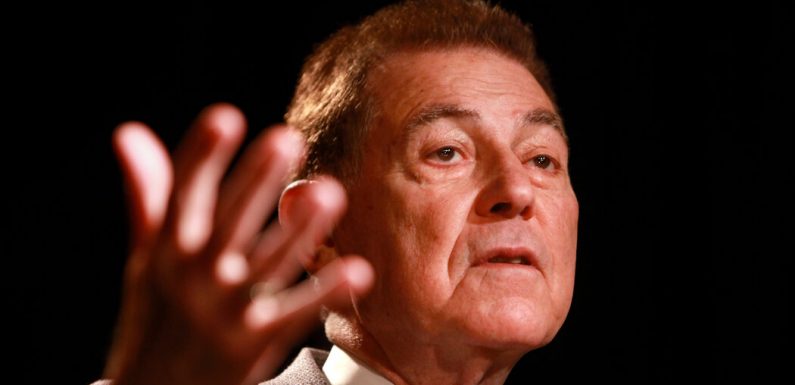
Francisco Ayala, one of the world’s leading evolutionary biologists and a champion of science against the forces of religious fundamentalism, who was forced to give up his university post late in life amid sexual harassment allegations, died on March 3 in Newport Beach, Calif. He was 88.
His son Carlos confirmed his death, in a hospital, which came after a fall.
Dr. Ayala brought the training of a geneticist to the study of evolution, making important findings about the emergence and extinction of species in response to natural selection, mutation and other natural processes.
As disputes about evolution raged in American courts, school boards and classrooms, Dr. Ayala, a native of Spain and a former Dominican priest, rose to its defense. In books, speeches and testimony in a lawsuit, he asserted that the theory of evolution is both scientifically sound and compatible with belief in God.
In 1981, he testified in a case that overturned an Arkansas law that had required a “balanced treatment” in teaching creationism and evolution.
His 2007 book, “Darwin’s Gift,” was widely praised as an accessible introduction to Darwin’s ideas and the development of evolutionary biology. Among other things, it suggested that it was evolution, not a divine creator or “intelligent designer,” that gave the human anatomy so many troublesome features — a spine that leaves people prone to back pain, a jaw too small for a person’s typical allotment of teeth, and other problems.
Eugenie C. Scott, a former director of the National Center for Science Education, said Dr. Ayala’s religious training and scientific expertise combined to make him a formidable ally, not just in defending the teaching of evolution, but also in persuading the leaders of eminent scientific organizations that they should join the battle.
“He helped them understand the importance of taking seriously the creationist challenge to science,” Dr. Scott said in an interview.
Dr. Ayala’s research, and his energy and eloquence in defense of science, won him many honors. He was elected to the National Academy of Sciences in 1980, and in 2001 he received the National Medal of Science, the nation’s highest honor for scientists and engineers. He was a fellow and one-time president of the American Association for the Advancement of Science.
In 2010, he won the $1.5 million Templeton Prize, an award given annually to people whose work involves questions of science and humanity’s place in the universe. He gave his prize money to the University of California, Irvine, whose faculty he joined in 1989.
But in 2018, at age 84, he was forced to resign after four women at the university accused him of sexual harassment. A university investigation found that he had touched female colleagues — putting his hands under an administrator’s jacket and rubbing her sides, for example — invited a female professor to sit on his lap in a meeting, made unwanted sexual comments, and continued to do so after being warned not to.
The university removed Dr. Ayala’s name from its school of biological sciences, which he had endowed with a $10 million contribution, its science library and from several professorships.
He was subsequently expelled from the National Academy, and his fellowship at the American Association for the Advancement was withdrawn.
His defenders, including some female faculty members, attributed his actions — which they described as compliments, kisses on the cheek and pats on the shoulder — to what they called misplaced European courtliness.
“I deeply regret that what I have always thought of as the good manners of a European gentleman — to greet women colleagues warmly, with a kiss to both cheeks, to compliment them on their beauty — made colleagues I respect uncomfortable,” Dr. Ayala said in a statement then. “It was never my intent to do so.”
But he said he would not contest the charges against him. He was in his 80s, he noted, and he did not want to get involved with legal action that might consume the rest of his life.
Instead, he continued to write, assisted colleagues with their work and devoted his time to his family and the small vineyards the family owns in Northern California, a business that made him wealthy enough to become one of the university’s most generous donors.
Francisco José Ayala Pereda was born in Madrid on March 12, 1934, to José Ayala and Soledad Pereda. He studied theology at the Pontifical Faculty of San Esteban in Salamanca, Spain, and was ordained a Roman Catholic priest in 1960. But he left the priesthood almost immediately and came to the United States in 1961 for graduate study in genetics at Columbia University.
He became an American citizen in 1971.
From Columbia, he went to Rockefeller University in Manhattan, then to the University of California at Davis and finally, in 1987, to Irvine, where he lived.
His marriage in 1968 to Mary Henderson ended in divorce. He married Hana Lostokova, an ecologist, in 1985. In addition to his son Carlos, he is survived by his wife, another son, Jose, and four grandchildren.
Dr. Ayala’s ouster from Irvine remains a subject of disagreement.
His accusers said his generosity to the university may have shielded him, making administrators reluctant to address a long pattern of unacceptable behavior and allowing it to continue unchecked for years.
His supporters said he was generous with more than money — with time, wisdom and concern — to colleagues and students. And his actions, they said, should not dim his accomplishments in science.
“One should not mourn someone who has lived such a long and rich life,” Dr. Scott said. “But he will be missed.”
Source: Read Full Article